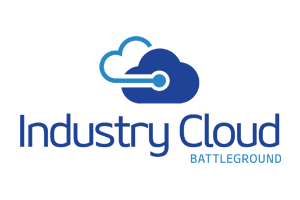When I hear the term Blockchain, we tend to think about cryptocurrencies, such as Bitcoin, or more recently non-fungible tokens (NFTs). But there are many other use cases for Blockchain technology that has the potential to provide answers to challenges that are very difficult to resolve without it. In manufacturing, for instance, there is a great need for transparency and trust across the entire value chain.
There are several areas in manufacturing that can benefit from the trust and transparency provided by Blockchain:
1. Supply Chain Monitoring
It is necessary for manufacturing to be able to trust all the components that go into your final product. If the wrong part or even a counterfeit is introduced into the product somewhere in the supply chain, then it isn’t possible to trust the integrity of the produced goods.
Modern manufacturing companies are now reliant on worldwide supply chains. Manufacturing plants must often be placed in locations far removed from natural resources and raw materials. As a product makes its way through the value chain, often crossing international boundaries, it becomes very difficult to track the provenance of materials and manufactured goods.
Trading relationships can be strained by a lack of information and visibility. When a single link in the chain is disrupted, an entire operation’s resilience can be called into question. What is needed is an indisputable record of every transaction between every party that participates in the workflow. In this way, trading partners can be comfortable knowing that conflicts can be resolved quickly and fairly.
IBM has delivered Blockchain solutions for transparent, resilient supply chains used in vaccine distribution, food, and container logistics.
2. Predictive Maintenance
Using IoT and predictive analytics, manufacturers can monitor the service parts in the process. This is particularly difficult in very large global supply chains where parts pass through multiple partners and even national borders. Using Blockchain to help ensure visibility at every step of the way, a global service supply chain can ensure that repairs are made quickly and at the right point in the process.
3. Quality Assurance
To guarantee and document the quality of a finished good, the manufacturing company must be able to account for the quality of all the components or raw materials throughout the production lifecycle. It can be very costly to share this kind of documentation across a broad range of partner companies, due to the need for a central IT platform shared by all those companies. Innovations offered by Blockchain provide the ability to share this information in a way that all parties involved can trust and rely on in a less costly manner.
4. Regulatory Compliance
Regulatory compliance can be a very complex process, making it a prime candidate for Blockchain improvements. One key aspect of compliance is the auditing of change, which is exactly what Blockchain is designed for. Every transaction is recorded and documented as to who did what when. Regulators could automate the analysis of the audit trail provided by Blockchain, eliminating countless hours of manual work normally required by compliance requirements.
5. Sustainability
One of the biggest hurdles to widespread sustainability is the difficulty of reporting, and lack of trust between organizations that have differing ideas, agendas, and needs. Without Blockchain technology, this communication requires agreement on a central party as an intermediary. If that intermediary exerts excessive control, then trust is lost, and it becomes very difficult to attract other parties to the collaboration. For a comprehensive analysis of Blockchain’s capabilities on sustainability see this article.
Related Technologies
After the Blockchain technology is put into place, there will inevitably be a flood of data that is made available. Sorting through all this information to foster transparency and provide business insights requires sophisticated analysis capabilities. Artificial Intelligence is the ideal solution, with the ability to leverage machine learning models to return actionable insights and recommendations. The reverse is also true. Blockchain can assist AI by providing a trusted, transparent means to spread out the machine learning process across a wide range of devices and applications, rather than relying on a central AI system.
Caveats
Manufacturing companies tend to have very long upgrade cycles. The operational technology in place may not be modern enough to support Blockchain process monitoring. While new manufacturing facilities should be able to incorporate Blockchain with relative ease, replacing outdated equipment could be a much longer road.











